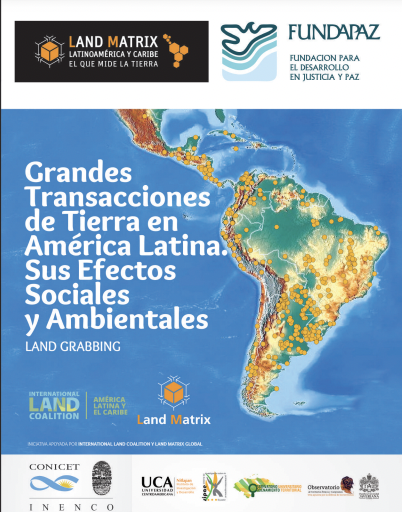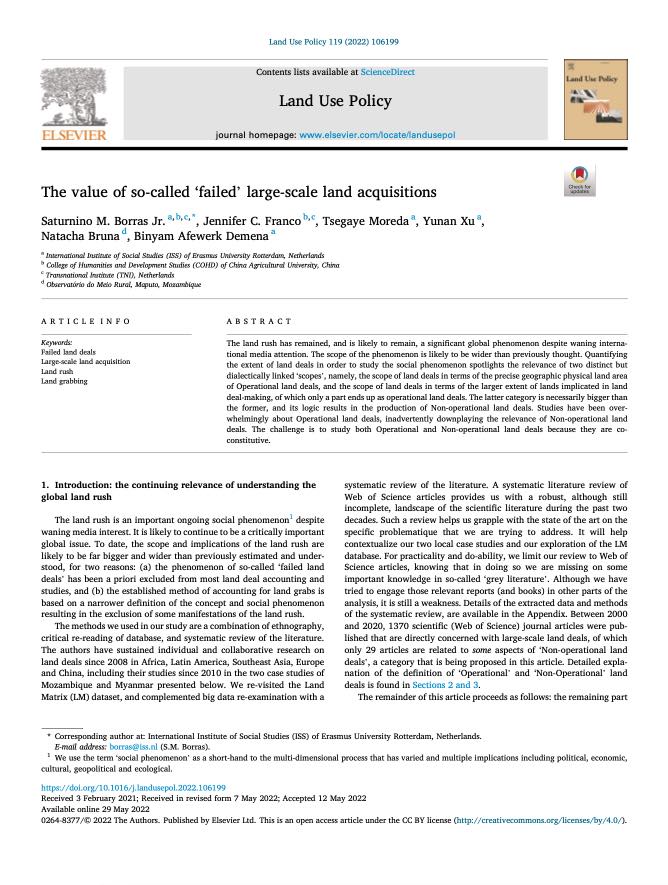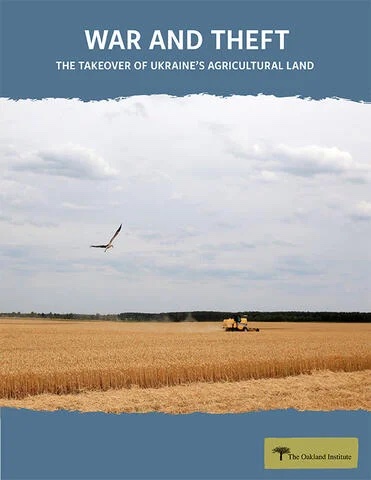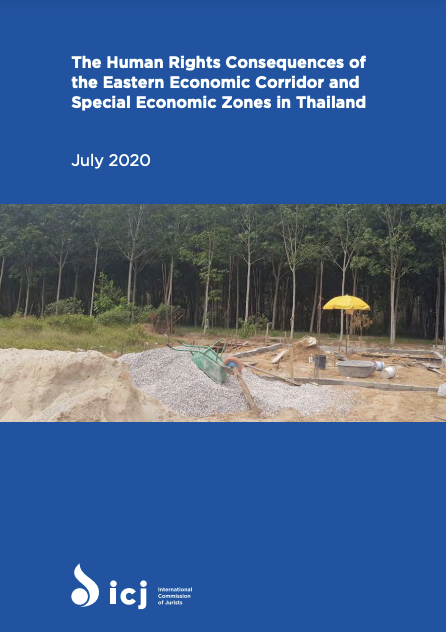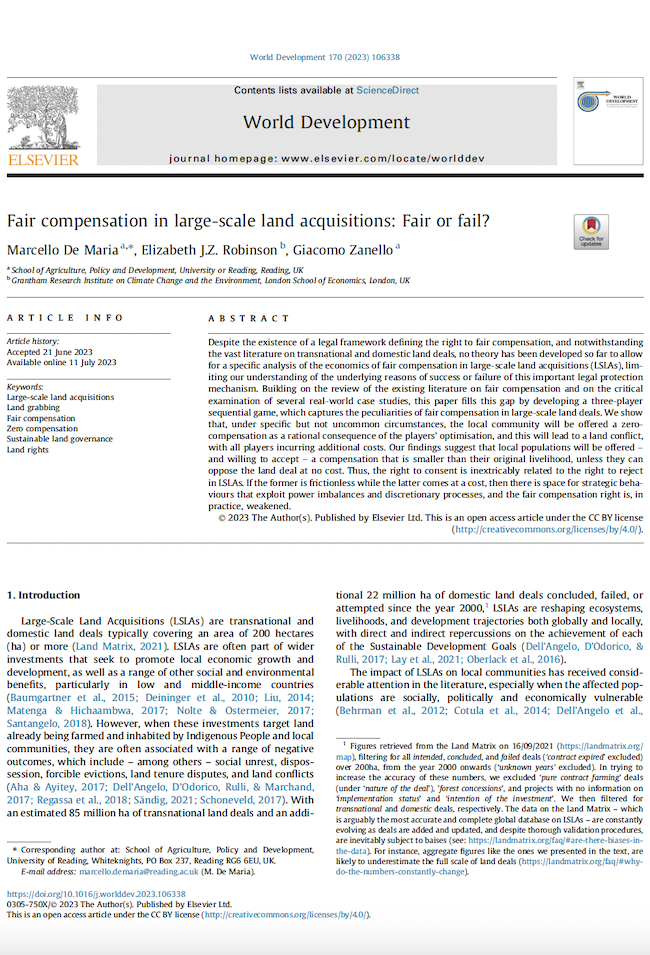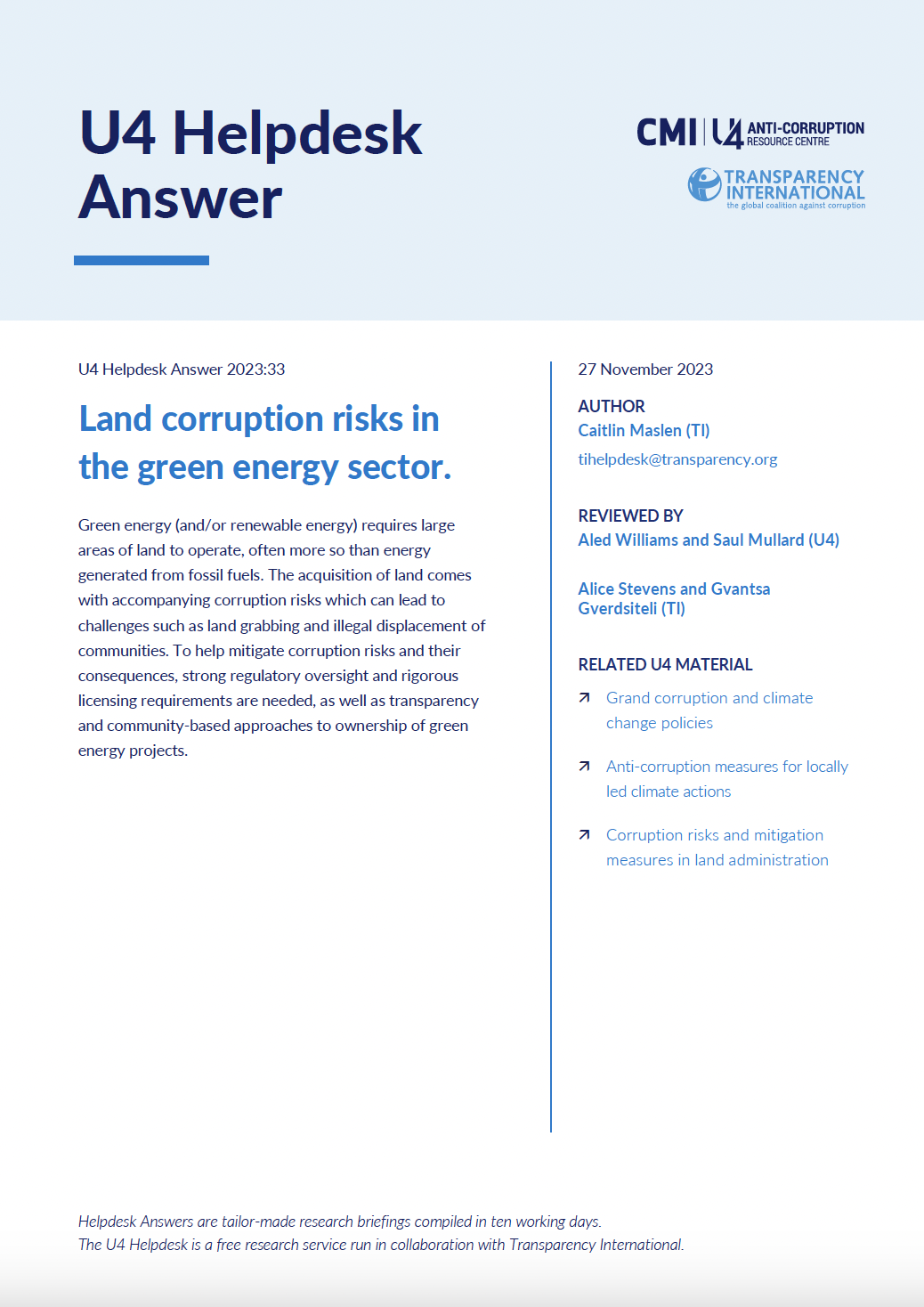Little Progress in Practice
Despite the progress made in terms of global and national land policy frameworks, effective changes in practices remain limited. This is particularly the case with regard to large-scale land acquisitions (LSLAs), as highlighted through this assessment of the implementation of the Voluntary Guidelines on the Responsible Governance of Tenure (VGGTs) in the framework of LSLAs in Africa.
Key results for Africa include:
Grandes Transacciones de Tierra en América Latina. Sus Efectos Sociales y Ambientales. Land Grabbing
Esta publicación presenta una caracterización del fenómeno de las GTT en varios países de América Latina basada en los casos de la Land Matrix. Sobre Argentina, hay una caracterización para el Chaco Salteño que analiza además una metodología de trabajo para la identificación de GTT, los conflictos socio-ambientales en el Chaco, fundamentalmente en cuanto a la tenencia de la tierra y a los desmontes para ampliación de frontera agropecuaria.
The value of so-called ‘failed’ large-scale land acquisitions
The land rush has remained, and is likely to remain, a significant global phenomenon despite waning international media attention. The scope of the phenomenon is likely to be wider than previously thought.
War and Theft: The Takeover of Ukraine’s Agricultural Land
War and Theft: The Takeover of Ukraine’s Agricultural Land, exposes the financial interests and the dynamics at play leading to further concentration of land and finance.
The Human Rights Consequences of the Eastern Economic Corridor and Special Economic Zones in Thailand
The establishment and development of Special Economic Zones (SEZs) and the Eastern Economic Corridor (EEC) are a central part of the Thai government’s strategy to expand infrastructure and attract foreign investment. These areas have been designated for development pursuant to special legal and regulatory frameworks. SEZs can play a useful role in a country’s economic development strategy. However, in many instances, their establishment results in the dilution of legal protections for human rights and the environment.
Dispossession through land titling: Legal loopholes and shadow procedures to urbanized forestlands in the Yucatán Peninsula
Under certain circumstances, land titling, property regime changes, and land‐use conversions yield substantial profits. Yet few people possess the wealth, knowledge, and networks to benefit from these procedures. In the Yucatán Peninsula, a region recently targeted as a prominent investment location by the Mexican national government (mainly with the “Tren Maya” megaproject) and the private capital, forestlands collectively owned as ejidos by Mayan peasants are on the trend to complete privatization.
Illustration de stratégies de sécurisation des droits fonciers des femmes dans un contexte d’acquisition des terres à grande échelle au Sénégal
L’acquisition de larges superficies de terres arables dans les pays en développement pour y effectuer des investissements a pris forme et ampleur au Sénégal en 2000 avec l’avènement des réformes dans le secteur agricole. Une étude d’IPAR de 2011 dresse un tableau sombre d’attribution de grandes surfaces au profit d’investisseurs privés.Les femmes sont particulièrement touchées par ce phénomène.
Données d’observations de la terre et outils cartographiques libres à la caractérisation de la dynamique foncière face à l’accaparement des terres à grande échelle au sud-ouest Cameroun.
Situé en plein cœur de la forêt équatoriale dans le bassin du Congo, la région du Sud-ouest est sans doute l’une des plus riches du Cameroun. Elle comporte une biodiversité des plus diversifiées avec une importance significative des espèces endogènes ainsi que des espèces commerciales. Les conditions pédologiques, hydrographiques et orographiques sont favorables à l’agriculture, ce qui a amené les allemands dès leurs arrivées au Cameroun à s’y implanter.
Fair compensation in large-scale land acquisitions: Fair or fail?
Despite the existence of a legal framework defining the right to fair compensation, and notwithstanding the vast literature on transnational and domestic land deals, no theory has been developed so far to allow for a specific analysis of the economics of fair compensation in large-scale land acquisitions (LSLAs), limiting our understanding of the underlying reasons of success or failure of this important legal protection mechanism.
Land corruption risks in the green energy sector
Green energy (and/or renewable energy) requires large areas of land to operate, often more so than energy generated from fossil fuels. The acquisition of land comes with accompanying corruption risks which can lead to challenges such as land grabbing and illegal displacement of communities. To help mitigate corruption risks and their consequences, strong regulatory oversight and rigorous licensing requirements are needed, as well as transparency and community-based approaches to ownership of green energy projects.
Demand for agricultural land by foreign investors has been increasing in Mozambique over the last years and the Wanbao project is an example. The implementation of this project in Gaza has divided opinions between the government, civil society and acad...
Land Grabbing Or Rice Sector Development Opportunity?



